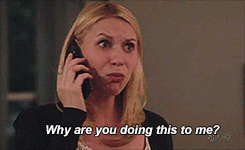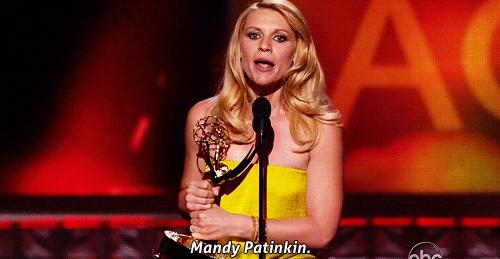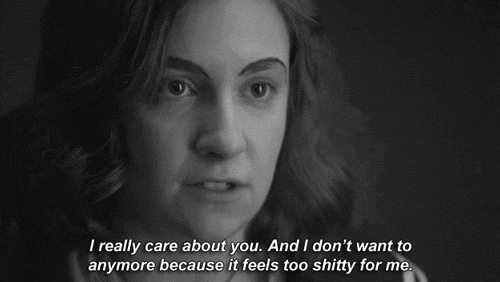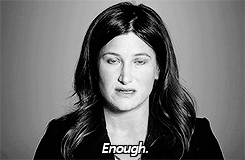First, a few basics. For fear of venturing too far into "the
Oxford English Dictionary's definition of [blank] is..." you should know that "autopsy" means "see for yourself." This is actually quite significant, for this autopsy today will demonstrate what years of relative progress have obscured in leagues of female television characters. If you wish to deny the evidence, just
see for yourself.
An autopsy is performed with respect and the pathologists here today take their task, and the body present, seriously. They are not vultures picking over the dead. You might say they stand in stark contrast to the female's male contemporaries, but that's neither here nor there.
Pathologists wish primarily to gain answers about the body they are investigating. Curiosity and satisfaction at learning the truth, at getting some answers, prevail.
We begin by inspecting the outside of the body, noting the following characteristics:
- Race: the overwhelming majority are Caucasian; minorities are precariously rare.
- Sex: yes, she should be sexy.
- Hair color and length: usually long so as to show she's a woman and differentiate her from her contemporaries. If it's short, she's probably proving a point and its length has been a minor plot point at some juncture.
- Facial features: will usually be wearing makeup, even though she's dead. A woman is rarely seen without makeup, even if she's just woken up. If she's not wearing makeup, then Something Is Up. She might be having an emotional and/or mental breakdown, and someone will always mention that she "doesn't look like herself" or "looks tired" (see exhibit A below).
- Approximate age: no older than 45, unless she is on TV Land or is named Meryl Streep. (Just kidding, Meryl would never do TV.)
- Any identifying features: possible examples include a mole or less-than-perfect teeth (exhibit B). These marks are important as they are usually the woman's trademark (e.g. "Megan Draper and her hideous teeth").

Homeland's Carrie Mathison looks rough.
Google suggestions for Mad Men's Megan Draper say it all: see for yourself.
After superficial examination (which is about as far as most of her contemporaries ever cared to go), begin by making a Y-shaped incision, starting at the shoulders, meeting at mid-chest, and going down below the waist. Cut the cartilages that join the ribs to the breastbone to open the chest cavity. Note the size of the women's breasts: this is a good indicator of her physical desirability and therefore overall worth to her contemporaries (exhibit C).
On Mad Men, Joan Holloway struggles to be seen as more than just a well-endowed secretary,
but she recognizes their ability to get her attention, whether positive or negative.
Once the chest cavity is open, examine the lungs and then the heart. The lungs often show signs of damage--they may be black or shriveled--from the woman's chronic trouble breathing due to persistent scrutiny from her male counterparts (exhibit D).
Breathe, Carrie, breathe.
Now examine the heart. First, if necessary, take a sample of blood from the heart to test for specific bacterial infections. Possible bacteria that may have infected her blood include
chickificicus, which causes a strong and independent female to be stripped of her own power and assertiveness when she shows a morsel of femininity; or
careermanoccus, in which a woman is forced to choose between her career and her man (very infrequently does she choose the former; when she does, there have been extraordinary circumstances, such as a massive terrorist attack; see exhibit E). There is often disease languishing in the heart, unbeknownst to the woman.
The point at which Carrie, having "chosen" Brody, realizes she must return to her job.
Examining the heart is tremendously useful in discovering more about the woman's love life (often her most interesting attribute, and often her primary focus, if not her sole reason for existence; see exhibit F). It is important to weigh organs, especially the heart. Large hearts indicate the woman was loving and compassionate and therefore viewed as weak by her male counterparts (exhibit G). Smaller hearts suggest the woman was a bit rough around the edges, not as compassionate, and probably not as receptive to male suitors and therefore viewed as a lesbian, raging feminazi, or else a heartless bitch (exhibit H).
On The Mindy Project, Mindy Lahiri's life seems to revolve around her romantic (mis)adventures.
Enlightened's Amy Jellicoe is loving, hopeful, compassionate, and "emotional": code for "weak."
Elizabeth Jennings on The Americans is a kickass spy but she's ruthless and distant. What a bitch!
An average-sized heart suggests a combination of these traits and is the most common among female protagonists. These woman usually were empathic, sometimes but not always career-oriented, and frequently faced various trials in their romantic lives (exhibit I). They still might have been viewed as weak, heartless bitches, unreasonable feminists, nags, shrews, or all of the above.
On Mad Men, everywoman Peggy Olson is fighting the good fight in a man's world.
Now we explore the abdominal cavity, first freeing up the large intestine. This will allow for the gradual removal and examination of other organs in the woman's body. Once the intestine is removed, we examine the bile ducts. They'll hardly ever contain any actual bile, because when was the last time you saw a woman eat on TV? If she is, it's usually played for comedy (exhibit J).
On Girls, Hannah Horvath's eating habits are the butt of many a joke.
Moving on, we dissect the liver. If the woman's liver is fatty, she was probably a heavy drinker (exhibit K). The woman's liver will often be deformed and degraded from overwork from detoxification. After all, a woman can only take so much of and filter out the toxins from her contemporaries. Occasionally residual toxins will still be in the liver. These toxins are often contagious in that, in close proximity (e.g., for a husband and wife), they will leech from one spouse to the other.
Amazingly, these toxins show virtually no symptoms or signs in the male spouse but are horiffically noticeable in the female spouse. If these toxins are found, the woman was often ridiculed and overwhelmingly despised (see exhibit L, although many more examples exist).
The OC's Marissa Cooper, the teenage alcoholic. See also: Rayanne Graff, most everyone on Gossip Girl, etc.
Skyler White on Breaking Bad is a prime example of a wife and woman reviled for daring to ask to be treated like a human being by her monstrous husband (see also: Betty Draper, Megan Draper, Jessica Brody, Carmela Soprano). For further proof, check out the Skyler White meme (brace yourself for the idiocy).
Dissection continues with the removal of the spleen, stomach, pancreas, esophagus, and duodenum. It is important to open these and check for poisons. Just as toxins in the liver are passed from man to woman (or sometimes woman to woman), so, too, are the poisons leeched. These poisons are slow-working but effective and, over time, kill any shred of dignity the woman once possessed.
We also dissect the kidneys, ureters, and bladder. The small intestine and colon are rarely ever opened.
Exploration of the woman's reproductive region is vital. Here are her ovaries, often seen as her most significant asset and the source of much contention in her life. If her ovaries are dead or dying, her "biological clock" had started to tick or else stopped ticking entirely. If her ovaries are abnormally large, she was desperate for children, and this became the single most important thing about her. Because
all women want children. Even the women who don't want children secretly want children. They just haven't realized it yet. Don't worry, they'll come around. Women who don't want children are constantly reminded that they will change their minds, because eventually, they will (exhibit M). Occasionally, a woman will have average-sized ovaries, signifying that she doesn't want children that badly or is not ready to have them; she will have children anyway (exhibit N). Nevertheless, small ovaries, signifying absolutely zero interest in children, are incredibly rare, and their existence is only speculative.
Kickass surgeon Cristina Yang, on Grey's Anatomy, doesn't want children but "it's only a phase"/"you'll grow out of it"/every other inane excuse you can think of, says her husband Owen.
So Mad Men's Betty Draper probably shouldn't have had kids...
The woman's sex organs are also an important signifier of the woman's general worth. In fact, most women come to become completely defined by the state of these organs and the frequency with which they were used. For unmarried women, if they were seldom used, she was a prude. If they were sometimes used, she was a slut. Curiously, there is no middle ground. If the woman was married, frequent use suggests she was crude and horny (exhibit O); if they were seldom used, then her husband was very likely cheating on her with someone else because she drove him away.
On Happy Endings, Jane's healthy sex life with her husband Brad is frequently mocked ("played for laughs").
Now we replace the organs and close up the abdominal and chest cavities carefully.
Examination of the brain is also a vital step in exploring the woman's pathology. Begin by making an incision across the forehead, cutting across the scalp and past the ears. Carefully open the skin flap and, using a vibrating saw, open the skull. Carefully remove the brain and bisect it into its right and left halves. An enlarged left side signifies the woman was highly logical and adept at analytical thinking. She might have made exceptional connections and realizations and then been profoundly marginalized by her male counterparts. If the right side of the brain is enlarged the woman was particularly skilled at the creative arts and at reading emotions. Most likely she used these talents
in service of a man: to show him The Way, how to live his life, how to be a Real Man (exhibit P).
On The OC, Anna Stern serves to show Seth Cohen how to win Summer over and be a Real Man.
In brains in which neither side is particularly developed, this woman was "cognitively challenged." Check her hair; it is usually blonde (exhibit Q), although it is still unclear whether the repressed brain development caused the hair color or vice versa.
Happy Endings' Alex is the stereotypical dumb blonde. How original! ("I'm not as dumb as I am.")
Sometimes, a woman will have advanced development in both sides of the brain. She was especially intuitive and logical, able to speak many languages, may have organized her thoughts visually via color, and had excellent reasoning skills. No one ever listened to her (exhibit R).
Carrie Mathison is the ultimate Cassandra character. She speaks the truth but no one listens.
Dissection of the hippocampus, which controls short- and long-term memory, is also important. A woman whose hippocampus is plump and healthy-looking was, ironically, never able to let anything go; what a nag! If the hippocampus is shriveled and grey then the woman was probably forgiving or maybe optimistic, but usually she was just clueless and idiotic.
After exploration and replacement of the brain, we close the scalp and sew it carefully.
While dissection of the woman's various internal organs, as well as the superficial examination of her body, is important in learning more about who she was and how she lived, these alone will not reveal her cause of death. Instead, we look at the Achilles tendon. The tendon will reveal the woman's ultimate fatal flaw, impossible to overcome in spite of her other strengths and positive attributes. These may include horrific self-involvement (exhibit S); a profound fear of being alone her entire life (exhibit T); or a strict adherence to and reliance on traditional gender roles that are changing rapidly (exhibit U). We rarely find two Achilles tendons that are exactly alike.
Amy Jellicoe has good intentions but is horrendously self-absorbed. Me, me, me!
Carrie Mathison: "no man is an island, but this woman is."
Joan Holloway makes the men turn their heads and loves it.
After close examination of the Achilles tendon, we note the cause of death and wash the body. Then the autopsy is complete.
It is important to approach each body with a fresh perspective. Every autopsy is unique. In recent years especially, our methodology has evolved tremendously, growing in sophistication as the bodies we investigate have, too. But there is still great progress to be made. As pathologists, we always strive to glean meaning and truth from the bodies we study. As such, you'll see the sign hanging in our mortuary that reads "Hic locus est ubi
mors gaudet succurrere vitae," translated as "This is the place where death rejoices to help those who live."










































